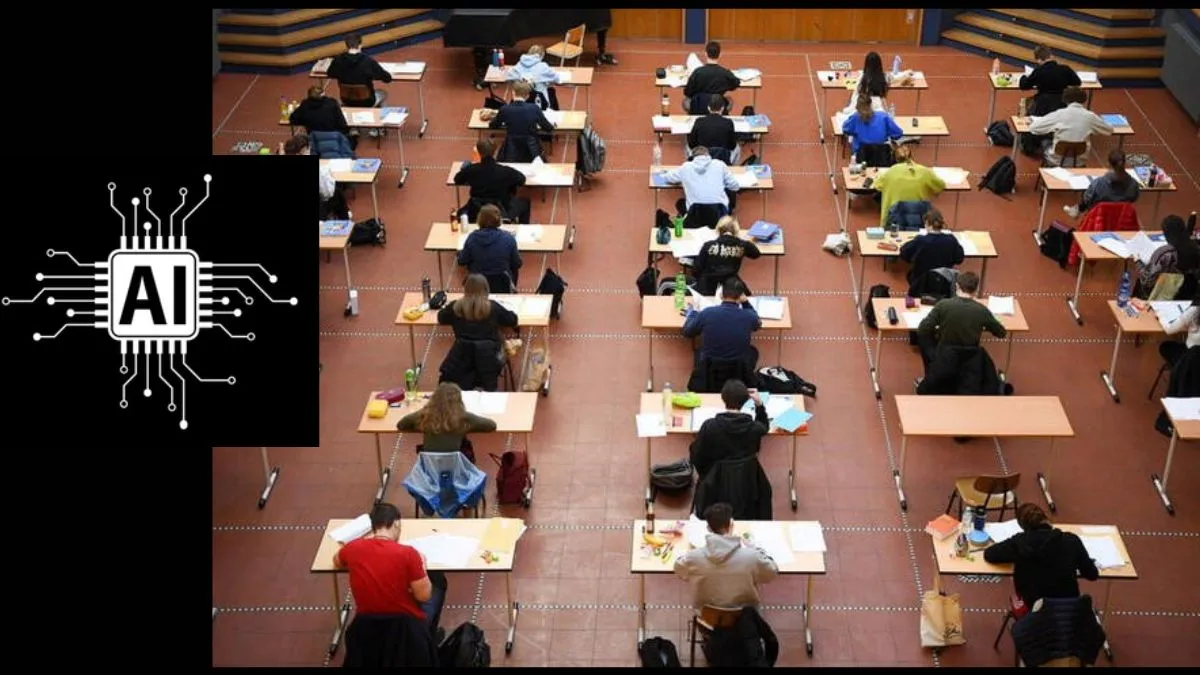AI-generated answers go undetected by educators and score higher: Study reveals
A recent study has revealed that AI-generated answers could easily deceive the examiners and achieve higher grades, which is considered a significant threat to academic integrity.

Artificial intelligence (AI) has taken over most industries, revolutionizing several sectors and education is no exception. However, a new study from the University of Reading in the UK has surfaced and raised serious concerns about how students might misuse AI tools to cheat in exams and score higher than their peers who do not cheat.
AI vs. human: Who is better?
Researchers are working on figuring out if human examiners could differentiate between exam answers which were generated by AI and those which were originally written by real students. The findings were unexpected as the examiners struggled to identify the AI-generated answers, which led to giving more marks to those from the actual students.
It was The Telegraph where Peter Scarfe, an Associate Professor of Psychology at the University of Reading (UK), along with his team shared that they published their findings in the journal PLOS One (on June 26, 2024) which stated, "From a perspective of academic integrity, 100 per cent AI (answers) being virtually undetectable is extremely concerning."
Testing AI in real exams: Experiment
To conduct the study, researchers are using GPT-4, an advanced AI language model which was developed by OpenAI, and leads to generating answers for the questions from BSc psychology degree modules from their university itself.
After that, they submitted these AI-generated answers to the university examiners, which were disguised as submissions from 33 fictitious students.
The examiners, who were unaware of which answers were AI-generated and which were real, had to grade both short-answer questions (limiting 200 words) and essay-based questions (limiting 1,500 words).
Astonishingly, the examiners identified only 6 per cent of the AI answers- meaning 94 per cent of the AI-generated answers went still undetected and, on average, they received higher grades than those which were written by the real students.
Implications for Education
The research further states: “This poses serious questions for the educational sector if we are to maintain the academic integrity of our assessments.”
Scarfe added: “To the examiners, the AI submissions looked like any other student submissions. The data suggest that the global education sector needs to reconsider how students are assessed.”
As AI continues to evolve, it has a capacity for abstract reasoning which is expected to improve significantly in the upcoming years.
Scarfe suggested, “There are different ways these could be run. For example, open-book exams where students have access to computers and a set of resources, but not AI. Other options include exams where students are asked to demonstrate competencies in-person rather than writing about those competencies.”
However, this approach might not address the issues of coursework or homework, which are typically unsupervised and completed outside of the exam environment.
Future of AI in education
As AI continues to evolve, develop and integrate into various aspects and industries, the education sector has been facing a critical challenge-
How to balance the benefits of AI with the need to preserve academic integrity?
The study has further highlighted the urgent need for educational institutions to rethink assessment methods and develop strategies to prevent AI-assisted cheating.
As of now, the debate continues on how best the AI integration into education.
ALSO READ: How to hide your WhatsApp display picture from unknown callers?